On the occasion of the 50th anniversary of national reunification, VietNamNet presents the series “April 30 – A New Era”.
In this series, military experts, historians, and living witnesses share memories and lessons from Vietnam's great victory against American intervention. They recall the strength of national unity, the mobilization of the people, international support, and strategies in diplomacy and military operations - valuable lessons for today’s mission of national defense and development.
Through these stories, we invite readers to meet "living monuments" - the few remaining veterans, political prisoners, student activists, and urban fighters - who devoted their youth, faith, determination, and hopes for the day of complete victory.
Despite recently returning from an intense schedule of activities, the former Vice President, now in her 80s, radiates extraordinary vitality.
Naturally, our conversation turned to memories of those unforgettable years half a century ago.
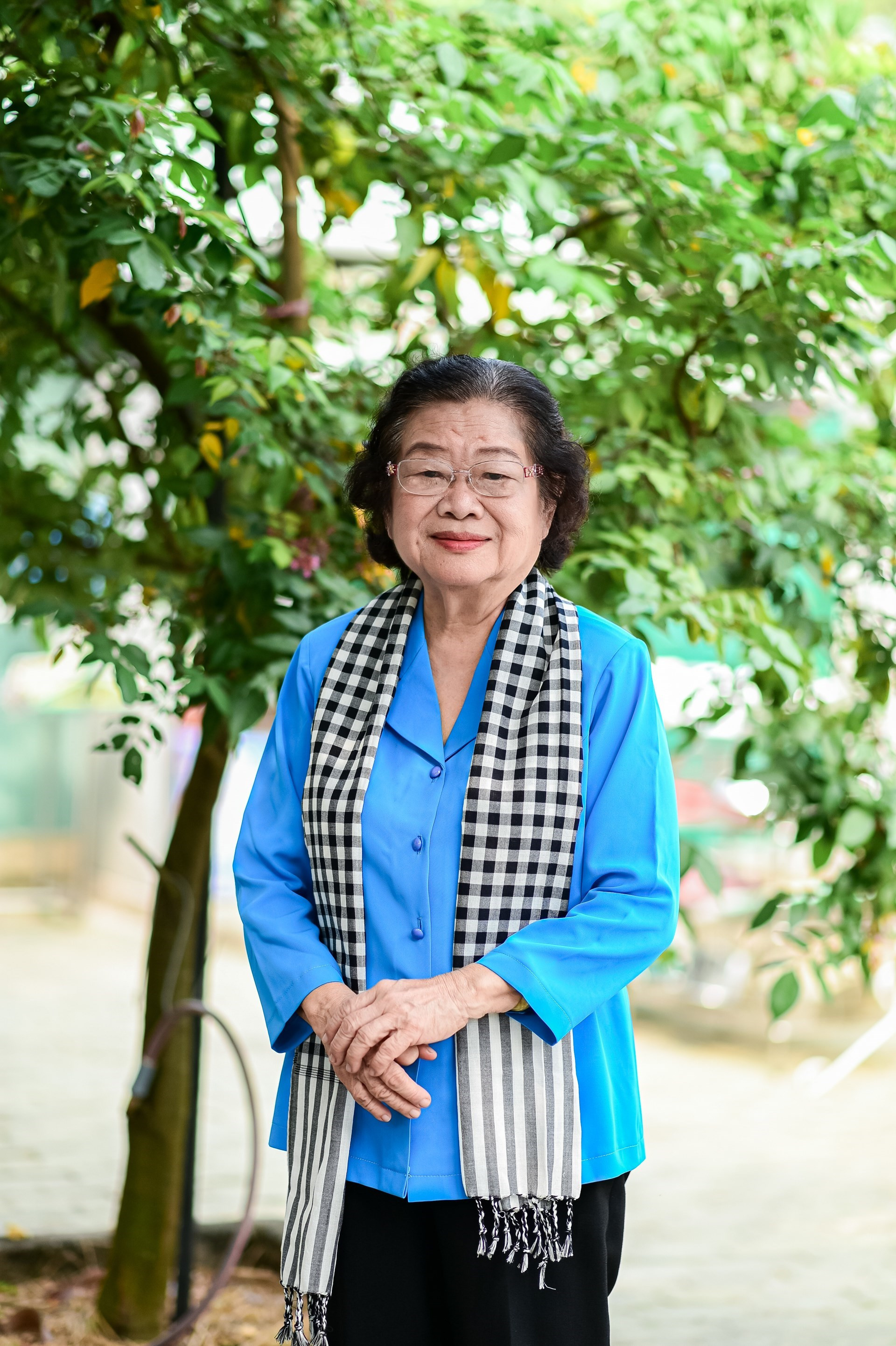
The 23rd person freed
On March 7, 1975, political prisoner Truong My Hoa was released unconditionally after 11 years of incarceration in what she described as “hell on earth.”
“I was imprisoned from 1964, spending a total of 11 years behind bars," she said.
"Unconditional release" referred to prisoners who refused to make any concessions or compromises with the enemy to secure their freedom.
The enemy would often offer freedom under humiliating conditions - such as saluting the South Vietnam regime's flag or denouncing communism. Those who refused were labeled "hard-headed" and subjected to brutal torture and indefinite detention.
Throughout her imprisonment, Truong My Hoa, who would later serve as Secretary of the Party Central Committee, Vice President (2002–2007), Vice Chairwoman of the National Assembly, and President of the Vietnam Women's Union, remained steadfast in her loyalty to the revolution.
During her incarceration, prisoners who accepted the enemy’s conditions were released but lost credibility with the Party and the people. Those like Hoa, who stood firm, were respected but endured prolonged suffering.
After the Paris Peace Accords were signed in January 1973, only 5,081 prisoners were recognized by the enemy, while nearly 200,000 political prisoners remained. Hoa was among those not released.
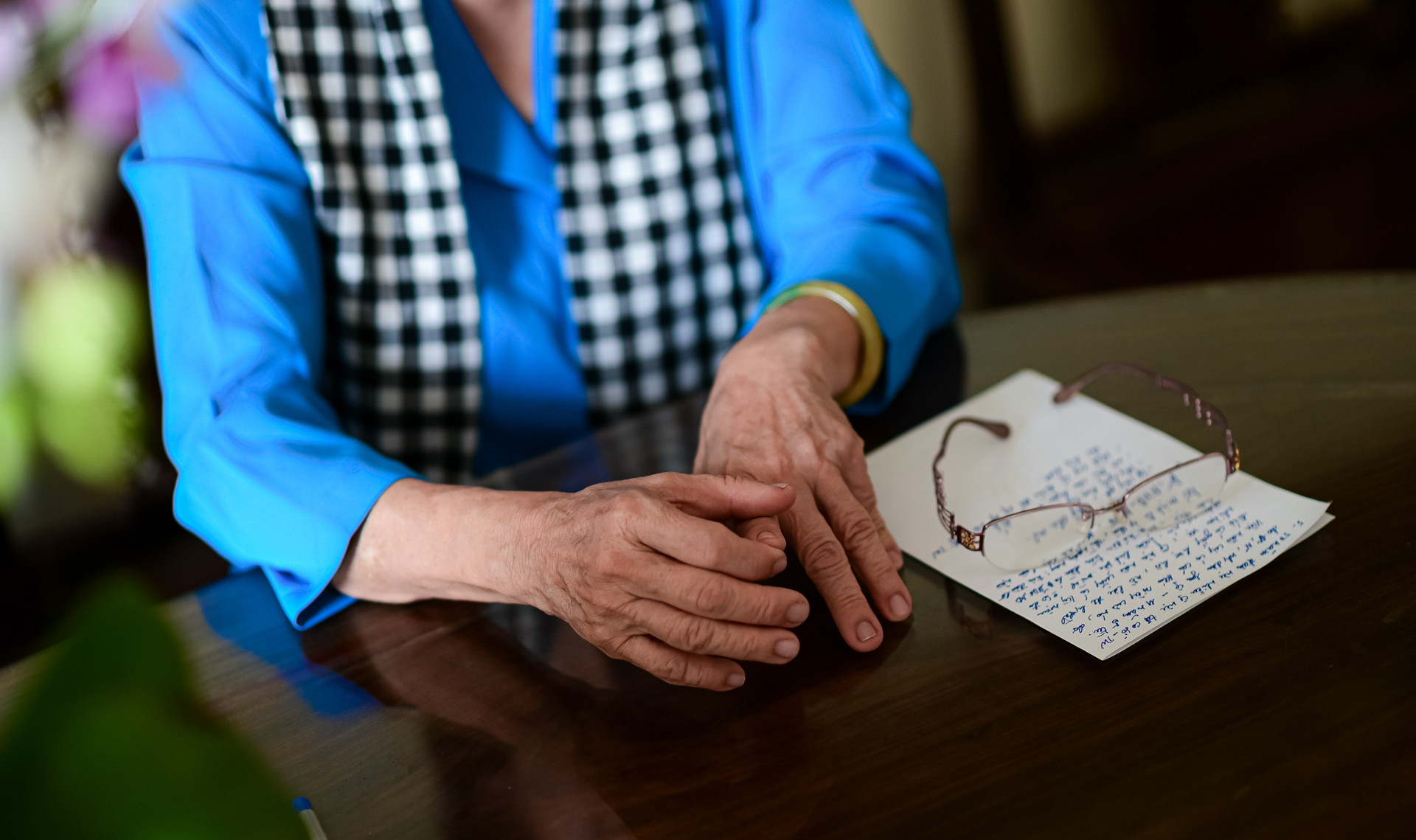
At Con Dao, prisoners faced new threats. The regime sought to forge new records, falsely reclassifying political prisoners as common criminals, thereby erasing evidence of political imprisonment.
Determined to resist, prisoners agreed to fight to the death rather than allow themselves to be reclassified. Part of this resistance involved a daily ritual: soaking their hands in water and grinding their fingertips against the prison floor to erase fingerprints and prevent the enemy from building new profiles.
When the enemy attempted to force them into fingerprinting and photography, the prisoners resisted fiercely - using soap and urine to create slippery conditions and even bracing doors with wire. When the enemy resorted to tear gas, the prisoners - having erased their fingerprints and refusing to open their eyes for photos - rendered the attempts futile.
Afterward, Hoa and others were transferred to Tan Hiep prison in Bien Hoa. Under mounting domestic and international pressure, the regime was forced to release a few political prisoners unconditionally. Hoa was the 23rd person to be freed from Tan Hiep without signing any document.
A jug of water at Bay Hien Intersection
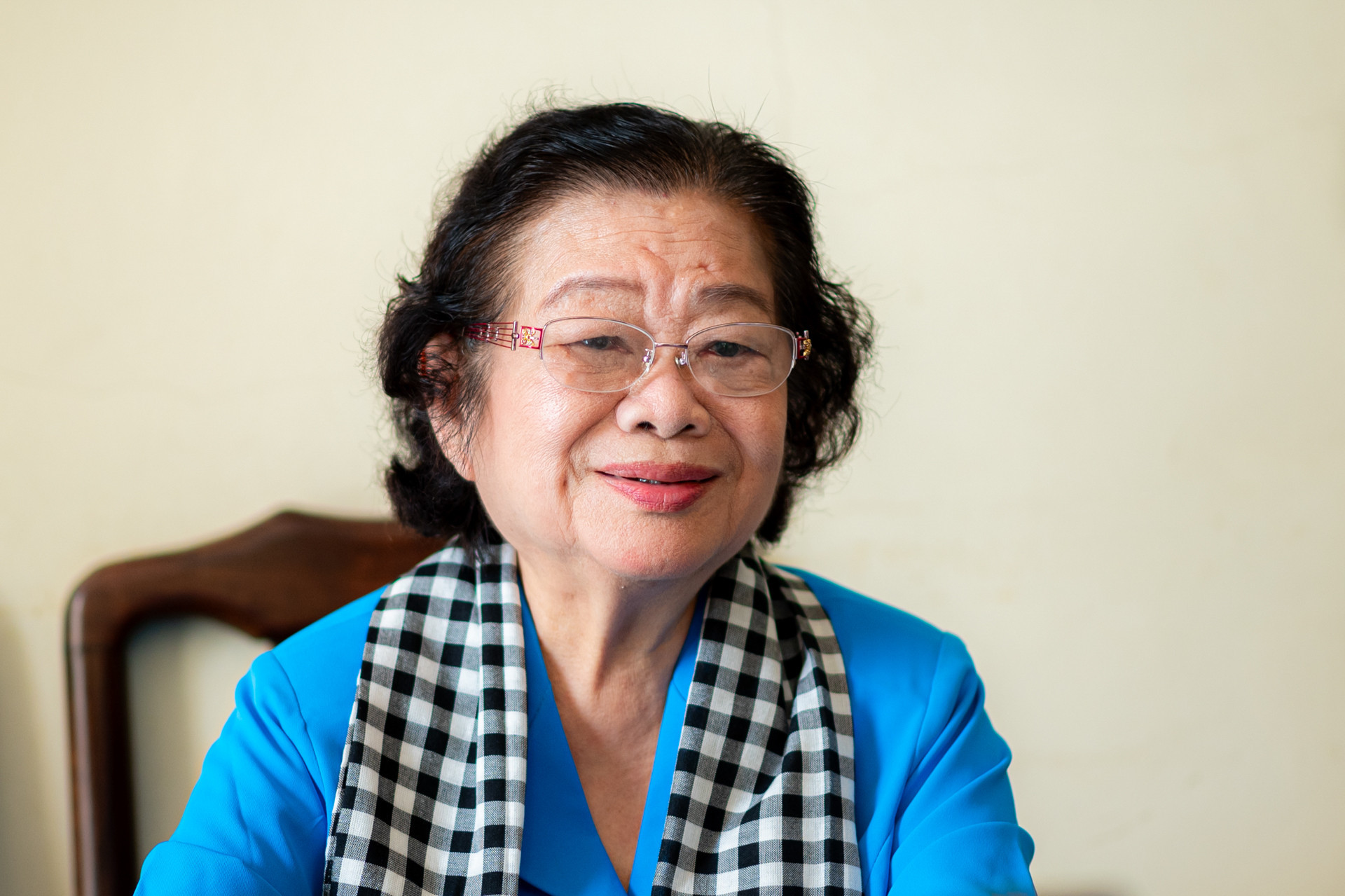
Upon her release, Hoa immediately rejoined the revolutionary movement during the 1975 Ho Chi Minh Campaign.
Assigned as Deputy Team Leader of Team 3 of the Ho Chi Minh City Youth Union, she led political forces into Gia Dinh to secure strategic areas. Despite concerns about her pending political review, her dedication and proven loyalty expedited the process.
On April 30, 1975, while marching toward Saigon, Hoa and her team heard the radio broadcast of President Duong Van Minh’s surrender. Overwhelmed with emotion, they continued on foot, helped along the way by joyful citizens.
At Bay Hien Intersection, a crowd had gathered, blocking traffic. While resting, an elderly man offered them a jug of water, taking a sip himself first to prove its safety - a gesture Hoa has never forgotten. Years later, while working in Tan Binh District, she found and personally thanked him.
Fighting within the heart of the enemy
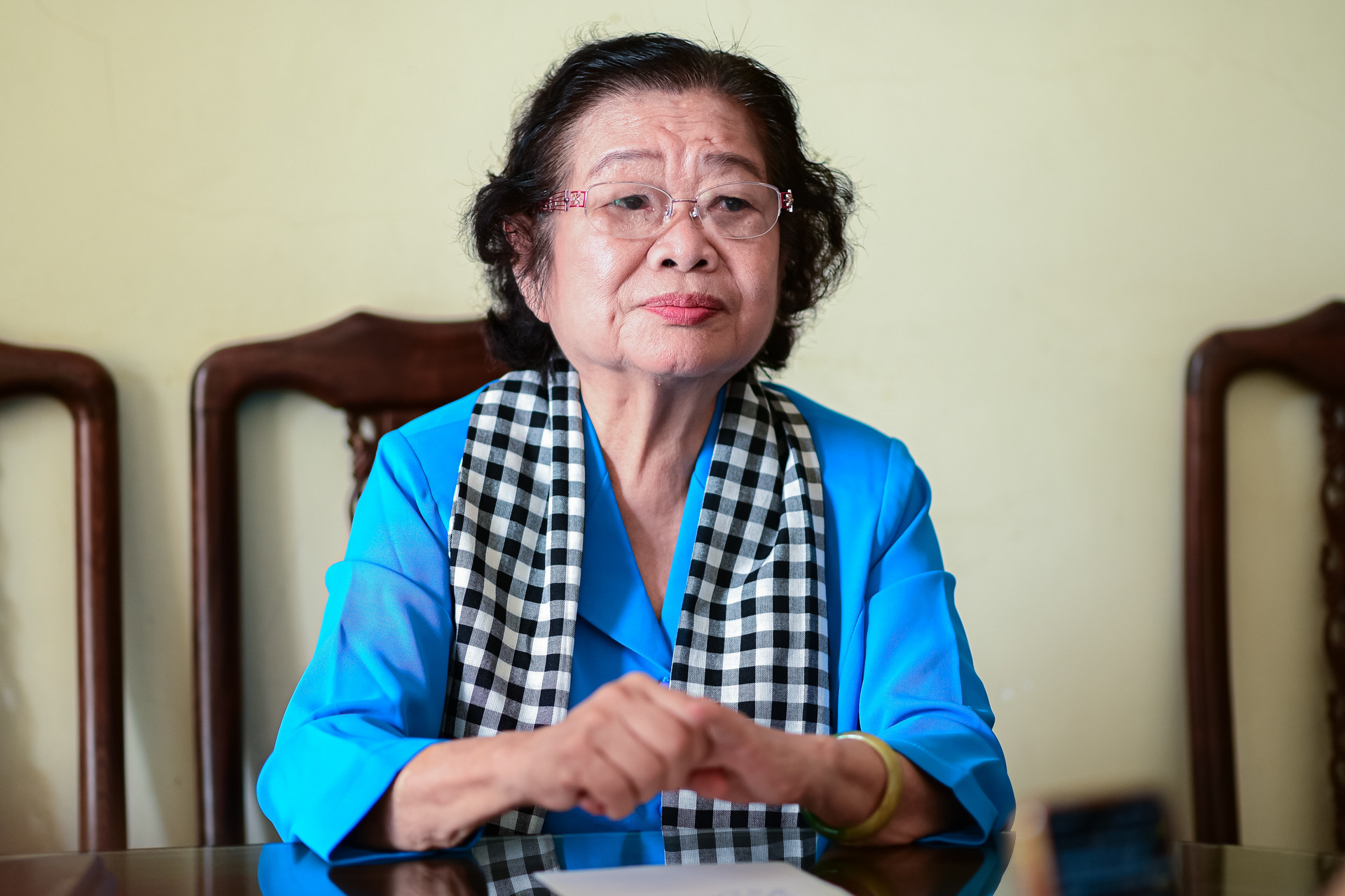
Reflecting on her 11 years in prison, Hoa emphasized that surviving the brutality required unwavering faith in the revolution.
New prisoners endured interrogations, beatings, and immense pressure to betray their comrades and ideals. Even in confinement, they had to wage continuous struggles for basic rights and dignity.
Fighting inside prison - “in the heart of the heart of the enemy” - was a daily battle with no weapons but faith, patriotism, and an unbreakable spirit.
Above all, prisoners drew strength from their conviction that "above us were the Party, President Ho Chi Minh, and the people," while the enemy stood before them. This belief fortified them against despair.
Poet Truy Phong’s verses from “A century, a few lines of poetry” resonated deeply with Hoa:
"Vietnam, my homeland -
Old or young, male or female,
Preferring death to surrender,
Those who invade shall die here.”
She and her comrades accepted that they might not live to see victory but trusted absolutely that justice would prevail.
Memories of fallen comrades
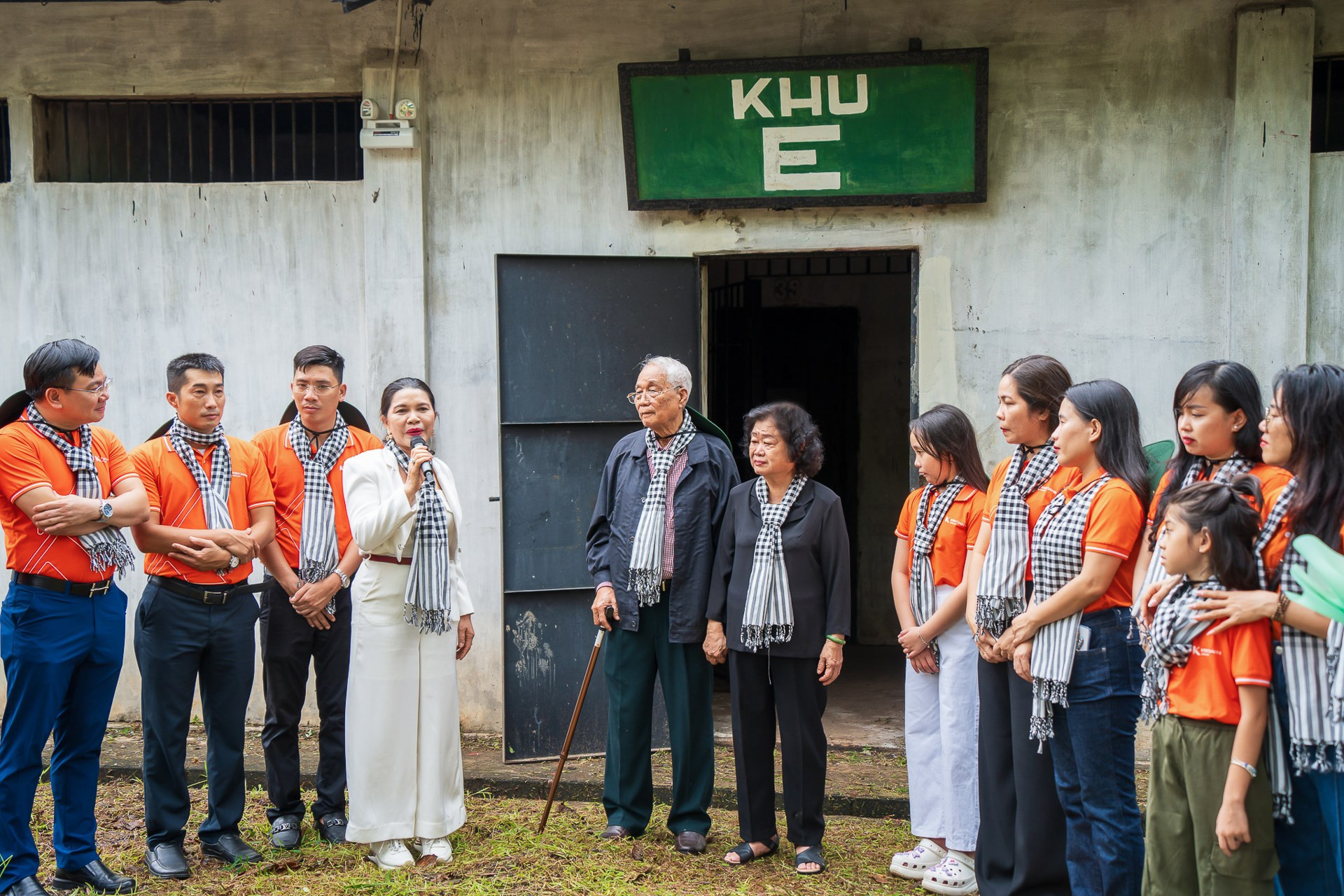
When asked who she thinks of first when recalling those turbulent years, Hoa spoke of her fellow prisoners - especially "Mother Sau Mu," a blind inmate in the tiger cages of Con Dao.
Despite her blindness and dire conditions, Mother Sau Mu dreamed of one day visiting her hometown in Quang Nam and paying respects at President Ho Chi Minh's Mausoleum in Hanoi - dreams she never lived to fulfill.
Hoa also remembered the young comrades who dreamed of peace, love, and family but never saw liberation, lying forever in Con Dao’s hallowed ground.
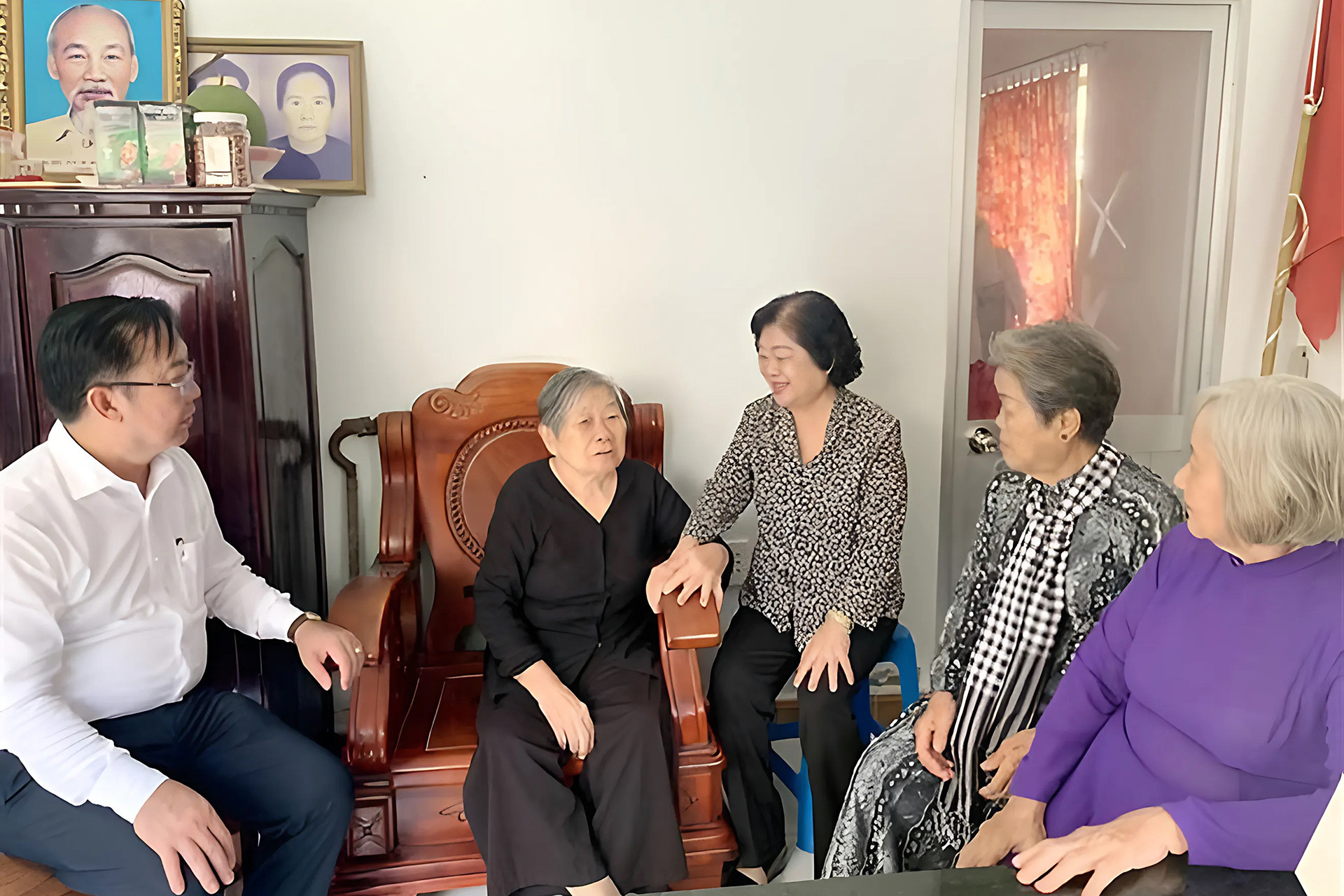
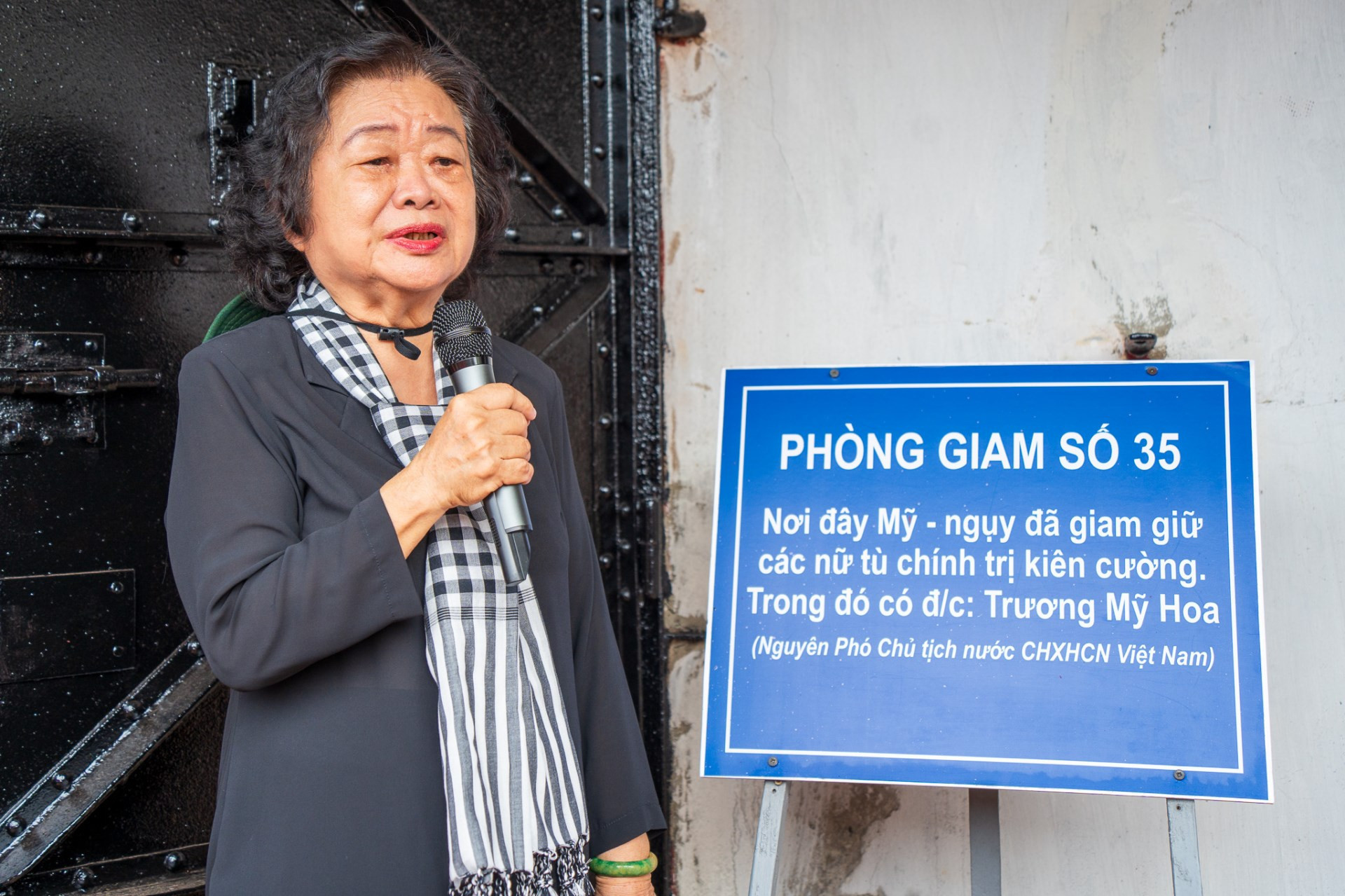
Returning to Con Dao, Hoa pays tribute to her fallen comrades, assuring them that their sacrifices contributed to the nation’s triumph and reunification.
Reflecting on moments when she was moved to tears by revolutionary songs like “Voluntarily” by composer Truong Quoc Khanh, she shared:
"Songs like that embody the call to unity, sacrifice, and living with honor. To be like a cloud, a bird - beautiful, free, and giving back to the country and the sky of Vietnam."
Hien Anh, Ngan Anh, Phuoc Sang